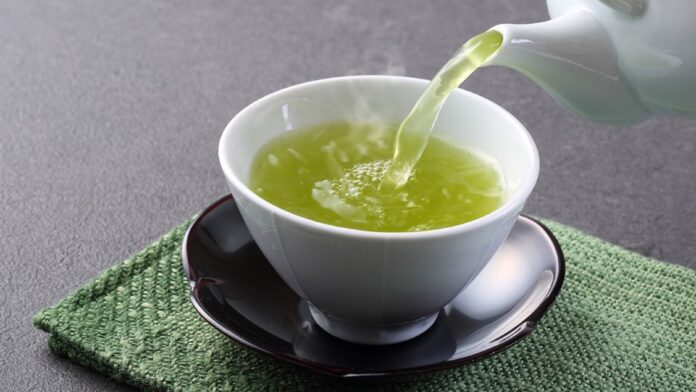
A new study has revealed promising findings about the potential of green tea in supporting brain health. Research conducted in Japan explored how daily consumption of this popular beverage could help reduce brain lesions linked to dementia.
Scientists analyzed data from over 8,700 older adults, focusing on their dietary habits and brain health markers.
The study identified a connection between higher intake and fewer cerebral white matter lesions, which are known to increase dementia risk.
Participants who consumed three or more cups daily showed a significant reduction in these lesions compared to those drinking less. The findings emphasize its potential role in preventing cognitive decline, particularly in older adults.
While the study focused on the Japanese population, researchers noted the need for broader studies to validate these benefits across diverse groups.
With its neuroprotective compounds and ability to lower blood pressure, green tea may offer a simple, accessible way to support long-term brain health.
Key Facts
- Drinking three or more cups of green tea daily reduces cerebral white matter lesions by 3 to 6 percent, potentially lowering dementia risk.
- Green tea’s neuroprotective benefits come from compounds like catechins and EGCG, which improve blood flow and reduce brain inflammation.
- Coffee does not provide similar benefits for brain health, with no significant impact on white matter lesions or cognitive decline prevention.
New Clues to Reducing Dementia Risk

Participants who drank three cups of green tea daily had 3 percent fewer white matter lesions compared to those who consumed only one cup.
Those who drank seven or more cups experienced a reduction of 6 percent.
What Are White Matter Lesions?
White matter lesions are small areas of brain damage often caused by high blood pressure and poor blood flow.
These lesions increase the risk of dementia by interfering with how different parts of the brain communicate.
Why Green Tea Works
The study credits its’s neuroprotective effects to its bioactive compounds:
- Catechins: Antioxidants that reduce oxidative stress and inflammation.
- Epigallocatechin Gallate (EGCG): Known to lower blood pressure and improve vascular health.
Researchers noted that the impact on blood pressure was a major factor. Regular consumption helps reduce both systolic and diastolic blood pressure, improving overall brain health.
How Much Green Tea Is Enough?
To gain the brain health benefits observed in the study:
- Drink at least three cups of green tea daily (approximately 600 mL).
- For optimal effects, aim for seven to eight cups, equating to about 1,500 mL per day.
Coffee Fails to Match Green Tea Benefits

While coffee often garners attention for its potential health advantages, recent research suggests it falls short of green tea in protecting brain health.
A study involving 8,766 older Japanese adults explored the effects of green tea and coffee consumption on markers associated with dementia, including white matter lesions and brain volume.
The findings revealed that regular tea drinkers experienced significant benefits, with a noticeable reduction in white matter lesions.
Those consuming three cups of tea daily had 3 percent fewer lesions, while seven or more cups resulted in a 6 percent reduction. Coffee, however, showed no significant impact on these markers.
Why Coffee Missed the Mark?
Unlike green tea, coffee’s effects on white matter lesions were minimal. Researchers attributed this difference to several factors:
- Caffeine Levels: Coffee contains higher caffeine concentrations, which may counteract its potential benefits for brain health.
- Antioxidant Profiles: It offers unique compounds like epigallocatechin gallate (EGCG), which coffee lacks.
- Blood Pressure Impact: Coffee can raise blood pressure in some individuals, whereas green tea is known to lower it, reducing a key risk factor for brain damage.
And one thing is certain – green tea is much healthier than popular Starbucks drinks, such as Vanilla Frappuccino. Also, those who want to experiment with new and exciting flavors should check out Mixue.
Conclusion
Researchers emphasize that while these findings are promising, further studies across diverse populations are essential to confirm them.
However, the data strongly suggest that adding green tea into a daily routine could serve as a simple, accessible strategy for supporting long-term brain health, particularly for older adults at risk of cognitive decline.
For those interested in the detailed study, it was published in the Nature Portfolio Journal Science of Food and can be accessed here.
Read Next – How Long Do I Have to Wait for Peppermint Tea to Show Results?
















